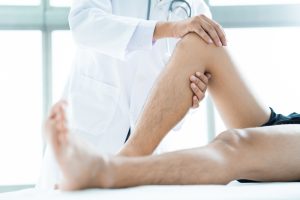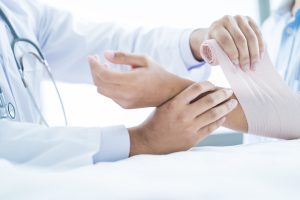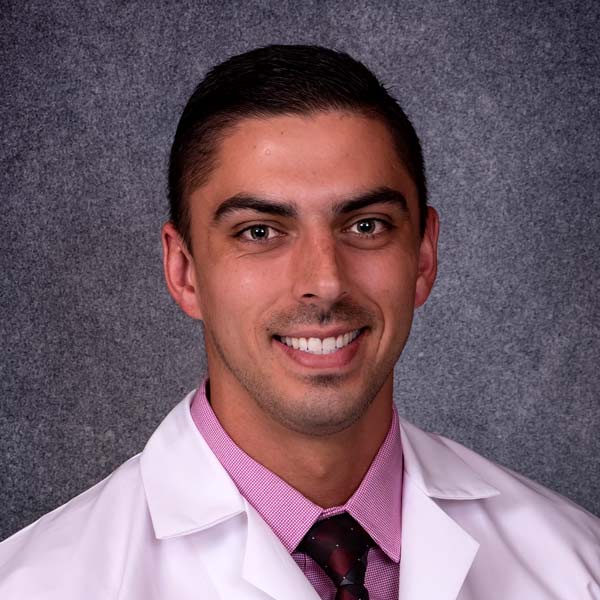Many people are unaware of what Orthopedics consist of. In this field, doctors specialize in the diagnosis, treatment, and therapy of conditions affecting bones, joints, muscles, tendons, ligaments, cartilage, and nerves in patients of all ages, from newborn babies to the elderly. Read the article below to get a better understanding of what Ortho consists of and click here to meet our team of orthopedic surgeons to learn how they can help you.
 Most people will see an orthopedist at some point in their life, and some people will see their orthopedist very often. Yet there is often confusion about exactly which conditions orthopedists treat. Orthopedics is the study of the musculoskeletal system. Doctors in this field of medicine specialize in the diagnosis, treatment, and therapy of conditions affecting bones, joints, muscles, tendons, ligaments, cartilage, and nerves in patients of all ages, from newborn babies to the elderly.
Most people will see an orthopedist at some point in their life, and some people will see their orthopedist very often. Yet there is often confusion about exactly which conditions orthopedists treat. Orthopedics is the study of the musculoskeletal system. Doctors in this field of medicine specialize in the diagnosis, treatment, and therapy of conditions affecting bones, joints, muscles, tendons, ligaments, cartilage, and nerves in patients of all ages, from newborn babies to the elderly.
The Field of Orthopedics
The musculoskeletal system comprises the framework of the body and the mechanics that make it function. While orthopedics focuses on this system specifically, the reality is that just about every medical specialty has some overlap with this specialty.
While some orthopedists undergo additional training to perform orthopedic surgeries, orthopedists in general spend the majority of their time treating patients outside of the operating room. Most orthopedic specialists have a busy office-based practice. Orthopedists can also be found working in the emergency room, taking care of patients in hospital wards, or even on the sidelines of sporting events.
It takes around 14 years of schooling and training post-college to become an orthopedic surgeon, but it’s a highly in-demand specialty. And even after more than a decade of training, many surgeons further sub-specialize within orthopedics.
The Greek word ortho means ‘straight’ and pedics comes from the word pais, meaning ‘child.’ For many centuries, orthopedists have been involved in the treatment of children with disabilities. One of the conditions orthopedists have treated for centuries is scoliosis in children.
Related Conditions
Orthopedic conditions are the most common reason people seek medical care, although not every patient with an orthopedic condition is seen by an orthopedic specialist.
About a third of people in the U.S. have some type of musculoskeletal disorder, and that number is rising.1 The good news is that most of these conditions are treatable. In fact, some of the most successful medical treatments and surgical procedures are orthopedic.
Some of the many issues that fall under the umbrella of orthopedics include:
- Osteoarthritis
- Carpal tunnel syndrome
- Torn meniscus
- Bursitis
- Fibromyalgia
- Hip fracture
- Back and neck pain
- Osteoporosis
Your Orthopedic Diagnosis
Not every person with shoulder pain has a rotator cuff tear, and not everyone with back pain has a muscle strain. While these problems may be among the most common causes of discomfort, if your condition is something else, the treatment may change.
Step number one is to find an orthopedist who can help diagnose the cause of your specific problem and steer your treatment in the right direction.
Once you’ve been diagnosed with an orthopedic condition, it’s important to find a practitioner who will take time to explain all your options and listen to your questions.
Taking Control of Your Treatment
The best way to manage your treatment is to educate yourself about the condition that is causing your symptoms. Many musculoskeletal conditions can be improved with proper conditioning and rehabilitation, but you have to learn the right things to do for therapy.
Empowering yourself with this knowledge may make a big difference in your recovery.
 Co-Occurring Conditions
Co-Occurring Conditions
Many common health problems make the management of orthopedic conditions much more difficult. Weight gain places tremendous stress on joints, and injured or worn-out joints almost always feel worse in heavier people. Smoking slows bone healing and can make recovery from treatment less successful and take longer.2
Maintaining your health can truly make the management of orthopedic problems much easier.
Living With an Orthopedic Problem
While many orthopedic conditions can be treated and cured, some people have lifelong diagnoses. One of the most challenging aspects of managing an orthopedic condition is staying fit and healthy while you have a musculoskeletal issue. Exercise is often difficult and painful for people suffering from bone and joint problems, for example.
On a positive note, there are many ways to modify activity and new activities you can try that may not place as much stress on an injured joint, allowing you to remain active and fit. Remember, orthopedic conditions are almost always best managed by keeping a normal body weight and maintaining strong musculature.3 There are exercises that you can perform even with painful joints.
How an Orthopedic Physical Therapist Help Can With Your Injuries
Questions You Should Ask Your Doctor
Always feel encouraged to ask questions of your orthopedist. In fact, if your orthopedist doesn’t have time for your questions, that may be a sign you need to find a different doctor.
The best way to ensure you get all of your questions answered is to write them down and bring them with you to your appointment. Make sure you also write down or record the answers your doctor gives you for future reference.
Another helpful way to ensure all of your questions are addressed is to have a health advocate. This may be a family member or a close friend, or it may be a professional social worker, but it should be someone who can come with you to appointments and help speak on your behalf. Often the anxiety of treatment or surgery can cloud your thinking. Having someone go with you to appointments can help ensure there are no loose ends.
Cost to Hire a Private Patient or Health Advocate
Complete and original article published on verywellhealth.com







